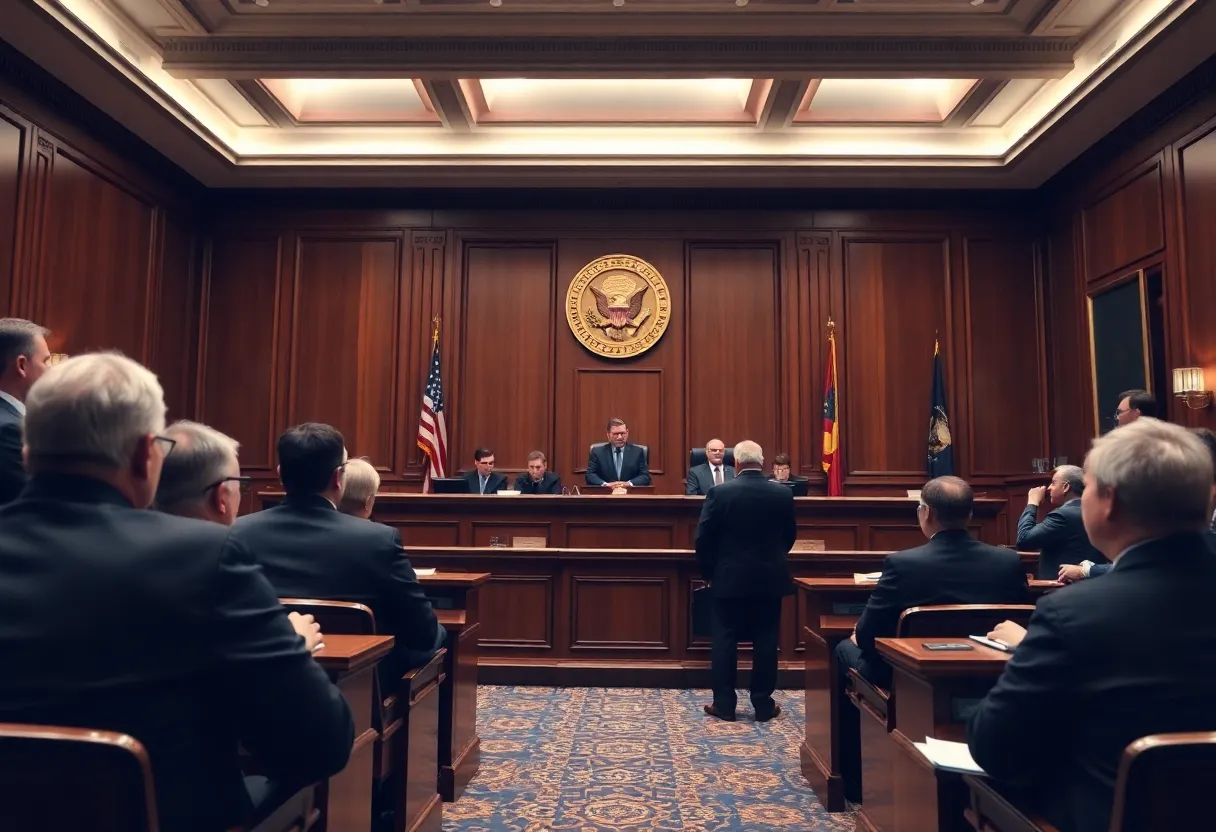

Lawmakers debate the new revenge porn legislation in South Carolina.
Want to target the right audience? Sponsor our site and choose your specific industry to connect with a relevant audience.
Prominent brand mentions across targeted, industry-focused articles
High-visibility placements that speak directly to an engaged local audience
Guaranteed coverage that maximizes exposure and reinforces your brand presence
Interested in seeing what sponsored content looks like on our platform?
May’s Roofing & Contracting
Forwal Construction
NSC Clips
Real Internet Sales
Suited
Florida4Golf
Click the button below to sponsor our articles:
Sponsor Our ArticlesSouth Carolina has enacted H.3049, making the non-consensual sharing of intimate images a felony offense. This new law includes severe penalties for offenders, addressing a significant gap in legal protections for victims. State Representatives who sponsored the bill emphasized the urgent need for action against such harmful conduct. In addition to criminal penalties, another bill is underway to allow victims to file lawsuits. This legislative move represents a critical step towards enhancing personal privacy and safeguarding individuals from the damaging impacts of revenge porn.
South Carolina has officially criminalized the sharing of intimate images without consent, a practice widely known as “revenge porn.” The new law, identified as H.3049, received unanimous approval from the South Carolina House of Representatives and has been signed into law by Governor Henry McMaster. With this legislation, South Carolina now joins the ranks of all other states in the United States, establishing legal repercussions for this damaging behavior.
The legislation categorizes revenge porn as a felony offense, making it illegal to disseminate intimate images—including photos and videos—with the intent to inflict physical, mental, economic, or reputational harm on an individual. If convicted, offenders may face serious penalties, including fines of up to $5,000 and possible imprisonment of up to five years for a first offense. The law also extends its reach to include artificial intelligence-generated images that bear likenesses of actual individuals without their consent for further distribution.
State Representative Chris Wooten, who sponsored the bill, emphasized the serious risks associated with sharing intimate images. Alongside him, Representative Travis Moore noted that the new legal framework would establish clear penalties for individuals who engage in such harmful conduct. This carefully drafted legislation aims to deter misuse of personal images and protect individuals from the emotional and psychological toll that can arise from these actions.
Prior to the enactment of this law, existing South Carolina statutes addressed issues related to sexual extortion but did not cover situations where individuals were victimized without the element of blackmail. This gap in the law highlighted a pressing need for comprehensive legislation that addresses the full scope of revenge porn, a concern echoed by advocates and supporters of the bill.
The impact of revenge porn on victims can be severe and long-lasting, leading to mental health issues, anxiety, and even instances of suicide. In recognition of these consequences, supporters of the new law pushed for urgent reform to provide a protective legal structure for victims. By establishing clear consequences for those who share intimate images without permission, the legislation represents a significant step toward addressing this pervasive issue.
In addition to H.3049, another bill is currently in the pipeline, which would empower victims to file lawsuits against individuals who share their intimate photos without consent, thereby creating a civil course of action in South Carolina. This additional legislation has also received bipartisan support and is progressing through legislative committees.
The passage of H.3049 is seen as a vital measure for enhancing the legal landscape surrounding personal privacy in South Carolina. As the last state in the U.S. to enact such laws, South Carolina’s legislative move marks a pivotal point in the ongoing battle against the non-consensual sharing of intimate images. Advocates are hopeful that these legal changes will increase awareness about the issue of revenge porn and its serious implications, ultimately fostering a safer environment for individuals to feel secure in their personal lives.
With these recent developments, South Carolina is taking significant steps to ensure that individuals have legal recourse against the malicious and harmful act of sharing intimate images without consent. As these laws come into effect, the hope is that they will deter potential offenders and provide necessary protections for victims coping with the aftermath of these violations.
How Can You Utilize Augmented Reality to Transform Your Digital Marketing Strategy? In today’s rapidly…
News Summary U.S. Senator Lindsey Graham has condemned recent violence against Christians in Taybeh, West…
News Summary A federal court has allowed a new Mississippi law requiring social media users…
News Summary Jamie Allen has been apprehended in North Carolina, linked to the murder of…
News Summary The Lowcountry Marine Mammal Network rescued a stranded female bottlenose dolphin named 'Lucky'…
News Summary Residents of Aiken County are on alert as severe thunderstorms are expected to…